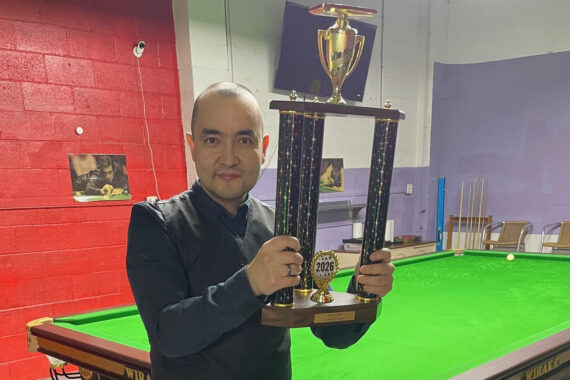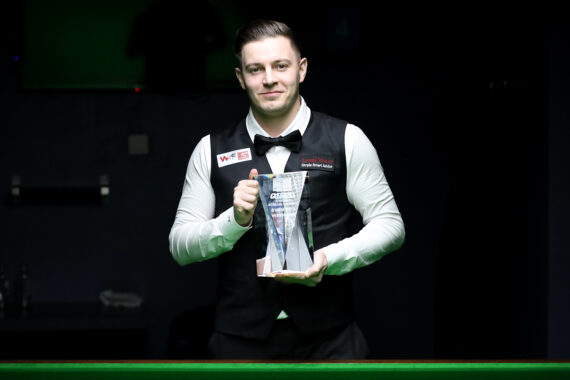Talking Solutions Supports Snooker Professionals
In September 2017 the World Professional Billiards and Snooker Association announced a new partnership with Brian Langshaw of Talking Solutions Ltd for the provision of mental health support for main tour snooker players.
The agreement represents an important element of the WPBSA’s commitment to the Mental Health Charter for Sport and Recreation, of which we became a signatory to in March 2015, and the support provided to all professional players.
 The service
The service
Almost two years on from the introduction of this service to our portfolio of support services available to WPBSA members, we caught up with Brian to discuss the services offered and his experiences working anonymously with players so far.
“Talking Solutions Limited provides a bespoke mental health service to all the members of the WPBSA,” said Langshaw, who is a registered mental health nurse, an accredited Cognitive Behavioural (CBT) psychotherapist and accredited EMDR practitioner.
“The service includes a discussion/assessment of the presenting problem, provision of time-limited course of psychotherapy (Cognitive Behavioural Therapy) and a dedicated confidential telephone line for the members of the WPBSA. All contacts to the service, are dealt with in the strictest of confidence.
“The service is principally aimed at providing help and support to professional snooker players registered with the WPBSA. The support offered is designed to promote the mental health of the player and alleviate problems that are impacting their mental health. Problems relating to stress, anxiety, depression, the personal and physical demands of being a professional snooker player are the common problems which have been addressed so far.”
Procedure
 The first point of contact for WPBSA members is a dedicated telephone line, with a voicemail service offered outside of working hours. Alternatively, an initial contact via email can be made if preferred by the member.
The first point of contact for WPBSA members is a dedicated telephone line, with a voicemail service offered outside of working hours. Alternatively, an initial contact via email can be made if preferred by the member.
From the initial contact, an assessment appointment will be agreed with the member to discuss in detail the problems experienced, and the level of support required. Up to six sessions of therapy can be offered initially and reviewed on a needs basis after this point. The number of sessions of therapy is agreed at assessment and provides a time frame for the work undertaken. The severity of the presenting problem and the member’s ability to work with the therapist and treatment methods will be taken into consideration when estimating the number of sessions required.
Treatment sessions can take the form of telephone contact, Skype or face-to-face meetings.
Cognitive Behavioural Therapy (CBT) is the main form of therapy offered, which can be adapted to meet the needs of the member depending upon the presenting problems reported.
The level of intervention required and the option to sign-post treatment to a more appropriate care agency, will be discussed with the player on an individual basis. This option will only be considered appropriate if the needs of the player require a more intensive treatment package. Sign-posting care and the most appropriate treatment options available will always be discussed with the player. The care provided is collaborative and Brian will work alongside the player to help and support them throughout. The service provided is confidential and remains within the bounds of professional conduct of the therapist and his duty of care.
Performance
From his experience, not just with snooker players but throughout his career Brian has identified a clear link between the mental health of players away from the baize and their performances on the table.
“Mental health and effective coping is strongly associated with enhance sporting performance,” adds Langshaw. “There is wealth of literature supporting this position.”
“From a practical perspective, it is clear to the snooker players engaged in this sport, that the healthier they are and the more effective they cope with the pressures they are under, the better their performance. Snooker is a game of mental challenges and is not only won by skill alone. There are several players whose performance has been enhanced by talking through their issues.”
Player support
If you are a WPBSA member and wish to contact Talking Solutions you can do so in the following ways:
Telephone: 01744 881048
Mobile: 07788 416127
Email: brianlangshaw@gmail.com
More information about the mental health support on offer to professional players is available at the Player Support section of our website here.




